Thomas Mann House Events Archive
2020
Jan Philipp Reemtsma: Democracy and Emphasis
Thomas Mann House 1550 (San Remo Drive Pacific Palisades, CA 90272)

Information
What does it mean to speak about - and for - democracy in an emphatic sense? Is there a common project committed democrats stand for and even would fight for in difficult and dangerous times?
Renowned German Scholar and writer Jan Philipp Reemtsma will speak in the series “55 Voices for Democracy” at the Thomas Mann House. The series expands the 55 BBC radio messages Thomas Mann sent from his house in California to thousands of listeners from Germany, Switzerland, Sweden and occupied Netherlands and Czechia. In his monthly radio speeches between October 1940 and November 1945 Mann spoke out against fascist ideas and became the most significant German voice in exile.
As the political crisis in Europe and the US deepens, the time demands a strong response for the preservation of social and liberal values, for the renewal of our political vocabulary, and for overcoming political separation and manipulation. Thomas Mann’s belief that the “social renewal of democracy is both condition and warrant for its victory” rings true more than ever before.
“55 Voices for Democracy” brings together internationally esteemed intellectuals, scientists, and artists to present ideas for the renewal of democracy. Like Thomas Mann, they will deliver short “radio” talks combined with public events. Previous contributors include Francis Fukuyama, Timothy Snyder and Ananya Roy. Renowned intellectuals like Orhan Pamuk, Bruce Ackerman, Seyla Benhabib and Larry Diamond have already confirmed their participation.
The event with Jan Philipp Reemtsma on January 9th is moderated by USC Professor and Director of the Annenberg Media Center, Christina Bellantoni.
Participants
Jan Philipp Reemtsma is Professor for New German Literature at the University of Hamburg and an internationally renowned author of works such as Gewalt als Lebensform (2016), Vertrauen und Gewalt (2008, translated as Trust and Violence, 2012) or Gebt der Erinnerung Namen (2007, with Saul Friedländer). The traveling exhibitions on the crimes of the Wehrmacht that he organized with the Hamburg Institute for Social Research, have had a lasting impact on the process of accounting for the past in Germany.
Christina Bellantoni is a USC Professor of Professional Practice and Director of the Annenberg Media Center. A multimedia journalist with over 20 years of experience, she has worked as a reporter, editor, producer, and analyst across numerous platforms. She is the former assistant managing editor of the Los Angeles Times and editor-in-chief at Roll Call.
Partners
Media partners for the series are Deutschlandfunk, Los Angeles Review of Books and Süddeutsche Zeitung.



Villa Aurora & Thomas Mann House e. V. is supported by the German Federal Foreign Office and Federal Government Commissioner for Culture and the Media.

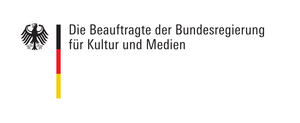
„So wohnen wir nun in einem modernen Haus. Wir mögen es dennoch.“
Berlin
Heike Catherina Mertens (VATMH-Geschäftsführerin)

„So wohnen wir nun in einem modernen Haus. Wir mögen es dennoch.“
Das Thomas Mann House in Pacific Palisades
Das Thomas Mann House in Pacific Palisades 1941 beauftragte Thomas Mann den Architekten Julius Ralph Davidson, einen der Hauptvertreter der kalifornischen Moderne, mit dem Bau eines neuen Hauses am San Remo Drive in den Hügeln der Pacific Palisades. Hier lebte er mit Katia von Februar 1942 bis zu seiner Rückkehr nach Europa 1952. In seinem Arbeitszimmer zu seiner Rückkehr nach Europa 1952. In seinem Arbeitszimmer entstanden u.a. der vierte Band der Joseph-Tetralogie, Dr. Faustus und Der Erwählte. Aus diesem kalifornischen Exil heraus wandte sich Thomas Mann auch über die BBC in seinen Radioansprachen an ‚Deutsche Hörer!‘ und setzte sich in seinem Werk intensiv mit Fragen nach den Wurzeln des Faschismus, nach demokratischer Erneuerung, Freiheit, Migration und Exil auseinander. Diesem Geist ist das Thomas Mann House nach seiner Eröffnung 2018 als Residenzhaus und Debattenort auch heute verpflichtet. Der Vortrag stellt die Geschichte des Hauses von seiner Entstehung bis zur heutigen Nutzung vor.
In Kooperation mit dem THOMAS-MANN-KREIS BERLIN
Location
Buchhandlung „Der Zauberberg“, Bundesallee 133, 12161 Berlin
Andreas Platthaus: Four mysterious years
Berlin

Lyonel Feininger during the Third Reich
The most prominent of Feininger’s colleagues left Germany in 1933, but the great Bauhaus Representative stayed, even though his American citizenship would have facilitated a refuge in the US enormously. What motivated Feininger to remain in Germany after the Nazis had broken up the Bauhaus? And why did he eventually decide to return to the U.S., which he had not set foot in for half a century? For several months, 2019 Thomas Mann fellow Andreas Platthaus has researched that question in several American archives. His lecture marks the start of „Salonabend“ in collaboration with the Studienstiftung des Deutschen Volkes. Since 2015, VATMH and Studienstiftung have been awarding a fellowship for visual artists at Villa Aurora.
A cooperation with Studienstiftung des deutschen Volkes e.V.
Location
Seminarraum Taubenschlag, 5. OG, Studienstiftung des deutschen Volkes e.V., Berlin-Brandenburgische Akademie der Wissenschaften, Markgrafenstr. 38, 10117 Berlin
This Event is part of Salon Sophie Charlotte 2020: Weltbilder
Since the beginning of time mankind has created images of the world it lives in. As early as the Stone Age people painted pictures of their surroundings on cave walls. Since then man has developed numerous scientific, philosophical and religious theories about the nature of the world. Individuals as well as societies took extreme risks to broaden their geographical horizons and to map the world even more accurately. To discover new worlds, they travelled long distances – even as far as into space. Until today they continue to develop new technologies to capture and depict the world in ever more differentiated ways. Worldviews can offer explanations of the world, they can provide reassurance, but they can also collide. Today only one thing appears to be certain: The singular use of the term "worldview" is outdated in an increasingly globalized and diversified world.
The Salon Sophie Charlotte 2020 therefore takes the plural form "Weltbilder/Worldviews" literally: It is dedicated to historical depictions of nature, to a wide range of world interpretations and models as well as current and future perspectives of the world. More than 100 scientists and artists will share their visionary approaches to the world with you. Hear from the austronaut Thomas Reiter about how the perspective on the world changes when viewed from space, listen to Nobel Prize winner Stefan Hell discuss how the new technology of nanoscopy surpasses the time-proven microscopic view of the world and debate with the winner of the German Book Prize Saša Stanišić about the connection between one's origin and one's worldview. While the Berlin Singakademie invites you to immerse yourself in its sound worlds and the author Judith Schalansky asks you to travel with her to remote islands, Jörg Thadeusz, Bibiana Beglau and Burghart Klaußner will take you on a journey into the underworld and back. And if you dare to put on virtual reality glasses you might just dive into entirely new worlds altogether.
Salon Sophie Charlotte 2020 "Weltbilder / Worldviews" is an event of the Berlin-Brandenburg Academy of Sciences and Humanities with the participation of the Alexander von Humboldt Foundation, the Max Planck Society, the Union of the German Academies of Sciences and Humanities, Die Junge Akademie, the Arab-German Young Academy of Sciences and Humanities, the German Academic Scholarship Foundation and the Villa Aurora & Thomas Mann House e. V., supported by the Gerda Henkel Foundation and the Fritz Thyssen Foundation.
Berlin-Brandenburg Academy of Sciences and Humanities
Akademiegebäude am Gendarmenmarkt
Markgrafenstraße 38, 10117 Berlin
Free admission. No registration required.
The Sound of San Remo Drive: A listening session with Alex Ross and Esa-Pekka Salonen
Thomas Mann House (1550 N San Remo Drive Pacific Palisades, CA 90272)

Information
In February 1920, a fateful visit to a friend’s home introduced Thomas Mann to a device that played recordings of the Tannhäuser Overture, La Bohème, and the Aida finale. Mann soon developed a deep and lasting fascination for the gramophone, noting in his diary that it was "a mentally and purely epic find." Shortly thereafter, Mann acquired his own gramophone and dedicated a whole chapter to "electric gramophone music" in his novel The Magic Mountain.
During Thomas Mann’s exile from Germany, music continued to be an integral part of his intellectual and social life in Los Angeles. At his house on San Remo Drive, Mann listened to his large collection of records — from Beethoven to Wagner to Benjamin Britten — and would host his friend the conductor Bruno Walter for musical evenings. At the house or in other settings, Mann had in-depth exchanges with some of the most influential musical figures of the time: Arnold Schoenberg, Theodor W. Adorno, Hanns Eisler, Ernst Toch and many others.
Inspired by these evenings, Alex Ross, music critic for The New Yorker, and Esa-Pekka Salonen, composer and conductor laureate of the Los Angeles Philharmonic and Music Director Designate of the San Francisco Symphony, will host a talk about Mann and his musical influences and contemporaries. The night will be complemented by listening to Ross and Salonen’s own collection of records from Mann’s time, which defined a new era of modern music.
By invitation only.
Partners
Villa Aurora & Thomas Mann House e. V. is supported by the German Federal Foreign Office and Federal Government Commissioner for Culture and the Media.


Workshop with Heike Paul: Gender and Reeducation in Japan, Germany, and the USA after World War II
GHI West UC Berkeley Campus (Moses Hall)

Information
The project seeks to identify the multidirectional influences, ramifications, and interdependencies between the US and Japan, the US and Germany as well as Japan and Germany which work in each of those domestic as well as foreign settings as part of a foundational discourse of legitimation. For instance, the positive self-representation of the US as a democratic exemplum to Japanese and German audiences points to attempts to mitigate social tensions and conflicts ‘at home’. Individual projects address gender regimes (in reeducation and Hollywood films as well as in Japanese women’s magazines), discourses on race (in cultural representations of and by African American soldiers and in Japanese-Okinawan identity constructions), and public opinion (broadcasting and public opinion research in Japan and Germany); instead of looking primarily at national developments, the aim is to study transnational relations, intra-cultural differences, and subnational formations. The main focus is on the construction of imagined communities as well as the ways in which reeducation efforts unfold in specific contexts characterized by asymmetrical power relations. Ultimately, this project works towards establishing “comparative reeducation studies” as an interdisciplinary field of study.
Programs
Thursday, February 20
8.30 a.m. Opening & Welcome by the Organizers: Claudia Roesch (GHI), Jana Aresin and Heike Paul (FAU)
9.00 – 10.15 a.m. Mire Koikari (University of Hawai’i): Re-visualizing Okinawa: Gender, Culture, and the Cold War in The Okinawa Graphic
Coffee Break
10.30 – 11.45 a.m. Jana Aresin (FAU): Consumers, Workers, Democratic Citizens? Renegotiation of Women’s Roles in US and Japanese Women’s Magazines, 1945-1960
Coffee Break
Noon – 1.15 p.m. Michiko Takeuchi (California State University): The International Women's Labor Movement and the US Occupation Liberation Policies on Japanese Women
Lunch Break
2.30 – 3.45 p.m. Tomoyuki Sasaki (William & Mary): An Army for the People: Democratization and Militarization in Postwar Japan
Coffee Break
4.00 – 5.15 p.m. Heike Paul (FAU): Women with(out) Men: Thoughts on the Construction of German Post-War Femininity
5.15 – 6.00 p.m. Shop Talk and Info Session on Transatlantic Cooperation with Nikolai Blaumer (Thomas Mann House), Claudia Roesch (GHI), and Katharina Gerund (FAU)
February 21, 2020
10.00 – 11.15 a.m. Sonia Gomez (University of Chicago): “Goodwill Ambassadors”: Domesticity and Citizenship in the Post-World War II Making of Japanese War Brides
Coffee Break
11.30 a.m. Film Screening + Discussion with director Kathryn Tolbert
Fall Seven Times, Get Up Eight – The Japanese War Brides
12.30 p.m. Brown Bag Meeting: US-Reeducation Films in Germany (Screening + comments by Heike Paul)
2.00 p.m. Closing Remarks
5.30 p.m. Conference Dinner at the GATHER
Participant
Heike Paul was born in Koblenz in 1968. From 1987 to 1994, she studied American Studies, Political Science, and English Studies at Goethe University Frankfurt and at the University of Washington, Seattle. After her master’s degree, she obtained her doctorate in the context of the research training group “Gender Difference and Literature” at LMU Munich and subsequently worked as a postdoc and assistant professor at Leipzig University, where she earned her postgraduate degree (Dr. phil. Habil.) in 2004. In the same year, she was appointed chair of American Studies at Friedrich-Alexander-University Erlangen-Nuremberg. Her research in cultural studies focuses especially on forms and functions of the sentimental (Global Sentimentality Project) and on dimensions of tacit knowledge. Heike Paul is a member of the Bavarian Academy of Sciences and Humanities and director of the Bavarian American Academy, in which she is deeply committed to transatlantic networking.
Partners
The event is organized by GHI and FAU as Part of the DFG-Project “Reeducation Revisited: Transnational and Comparative Perspectives on the Post-World War II Period in the US, Japan, and Germany.”



Lecture by Katharina Sykora: "On Showing: Ulrike Ottinger's Deictic Gestures." Lunch Talk at UCLA
Royce Hall 236 UCLA (10745 Dickson Ct Los Angeles, CA 90095)
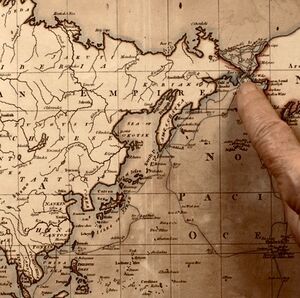
Information
Ulrike Ottinger is an internationally renowned artist whose work has been called a 'small universal theater' of its own (kleines Welttheater). Embracing film, photography, theater, and exhibitions, it draws the viewers' attention to the different ways of showing. The presentation will focus on this deictic structure in Ottinger's work and its presence both in her figures, her scenography, and the compositions of each frame. Showing her way of showing, Katharina Sykora wants to reflect upon this form of pointing things out demonstratively, like with the gesture of the index finger, and on how it generates cultural, historical, and gender differences.
Public event. Free admission.
Participant
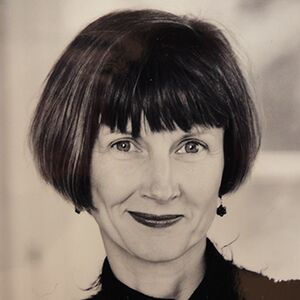
Prof. Dr. Katharina Sykora received her doctorate from the University of Heidelberg in 1983, after which she worked as a research assistant in archives and museums. From 1994 to 2000, she was Professor of Middle and Contemporary Art History with a focus on gender studies at the Ruhr University Bochum. From 2001 to 2018, she was Professor of 19th and 20th Century Art History at the Institute of Art History at the University of Fine Arts Braunschweig. Between 2013 and 2018, she also held the post of head of the DFG Research Training Group The Photographic Dispositive. Her research focuses on the construction of gender, authorship and affects in visual culture and the media comparison of photography, painting and film. Katharina Sykora also works as an exhibition curator.
Partners
Villa Aurora & Thomas Mann House e. V. is supported by the German Federal Foreign Office and Federal Government Commissioner for Culture and the Media.


Political Tribalism in the 21st Century [CANCELED]
Mendelssohn Remise, Jägerstraße 51, 10117 Berlin
Information
This event is part of the series "The Backlash against Liberal Democracy," which brings together influential voices from Europe and the United States to shed light on different aspects of the challenges that liberal democracies face. Together with our guest Amy Chua, we will discuss how renationalization dominates the political atmosphere in the United States and how the role of identity and political polarization affect U.S. foreign policy.
Participant
Amy Chua is the John M. Duff, Jr. Professor of Law at Yale Law School and is a noted expert in the areas of foreign policy, globalization, and ethnic conflict. She is bestselling author of numerous books, among others, The Triple Package: How Three Unlikely Traits Explain the Rise and Fall of Cultural Groups in America (2013) and her runaway bestseller 2011 memoir Battle Hymn of the Tiger Mother. The New York Times writes: “Chua approaches the no-go areas around which others usually tiptoe.” In such fashion, she unabatedly addresses the rise of identity politics in the United States in her latest book Political Tribes: Group Instinct and the Fate of Nations.
Partner
A cooperation with GERMAN MARSHALL FUND OF THE UNITED STATES.
Fair Pay Political Roundtable with Birte Meier [CANCELLED]
Permanent Mission of the Federal Republic of Germany to the United Nations (871 United Nations Plaza, New York, NY 10017, USA)

Information
The Fair Pay Political Roundtable will address how to deal with legislations enshrining fair pay principles as individuals. Equal pay for equal work and work of equal value has been high on the international agenda, as the UN Human Rights Council Resolution on equal pay and the engagement of the Equal Pay International Coalition (EPIC) demonstrates. There are a variety of countries who are rapidly progressing in fair pay legislations. But how can individuals use these laws to ensure fair pay for themselves, in their organizations or private environment.
In the Fair Pay Political Roundtable, experts from policy-making, NGOs, and academia will exchange on legislative approaches across the world and evaluate these approaches in how far they are practically supporting citizens in overcoming the wage gap.
The gender pay gap with its underlying causes is a global phenomenon: no country can report a wage gap of zero. There is strong support for equal pay, as an issue of fairness, and the readiness to act is immense. Irrespective of this consensus, however, women continue to be paid less for the same work or work of equal value.
Please register here
Registration starts at 3pm, please plan your time accordingly
Side event during the 64th Session of the Commission on the Status of Women
Participant

Birte Meier, born in 1971, studied at the FU Berlin, the University of Chicago and the University of the Arts Berlin and holds a master's degree in North American Studies, Modern History and Journalism. Since 2007, she has been a Frontal21 editor, producing investigative stories on politics and business - primarily on digitalization, globalization and the transformation of the market economy and democracy.
Partners

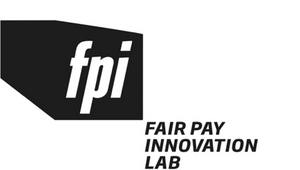


Villa Aurora & Thomas Mann House e. V. is supported by the German Federal Foreign Office and Federal Government Commissioner for Culture and the Media.


Panel Discussion: "Challenging the Gender Pay Gap"
1014 - space for ideas (1014 Fifth Ave New York, NY 10028)

Information
Join the former Director of the Office of Federal Contract Compliance Programs under President Obama Patricia Shiu and the German investigative journalist Birte Meier for a dialogue on equal pay efforts in the United States and Europe. Coinciding with the United Nations Commission on the Status of Women, 1014 and the American Council on Germany present this event that elaborates on the current situation of gender equality from a transatlantic perspective. What are the ways forward to close the gender pay gap? What are the best practices and where have policymakers recently failed? Why has it been so hard to put regulatory policies into place which would help to close the gap?
Moderated by Steven Sokol, President of the American Council on Germany (ACG). Presented in cooperation with the ACG and the Thomas Mann House.
Participants
Patricia Shiu is a consultant on diversity and inclusion policies that reflect an organization’s mission, culture, and brand. Appointed by President Barack Obama, Ms. Shiu served as the Director of the Office of Federal Contract Compliance Programs (OFCCP) at the Department of Labor (DOL) in Washington, DC from 2009-2016. OFCCP enforces laws that prohibit workplace discrimination on the basis of race, color, sex, national origin, religion, sexual orientation, gender identity, disability, and veteran status. OFCCP regulates the federal contractor community that employs approximately 20% of the American workforce.
While at DOL, Ms. Shiu and her team updated OFCCP regulations prohibiting discrimination and requiring affirmative action on the basis of sex, disability and veteran status. They also finalized new regulations, adding sexual orientation and gender identity as protected categories, and prohibiting discrimination against applicants and employees who inquire about, discuss or disclose their or another employee’s compensation.
Birte Meier, born in 1971, studied at the FU Berlin, the University of Chicago and the University of the Arts Berlin and holds a master's degree in North American Studies, Modern History, and Journalism. Since 2007, she has been a Frontal21 editor, producing investigative stories on politics and business - primarily on digitalization, globalization and the transformation of the market economy and democracy.
During her current fellowship at Thomas Mann House in Los Angeles, Birte Meier researches and publishes on Equal Pay: In California, there has been a cultural change in the matter of Equal Pay. Women are beginning to successfully demand equal pay for equal work. How did California do that? What can Germany learn from California so that women are empowered to effectively demand their constitutional right to equal pay?
Partner
This event is a cooperation of Villa Aurora & Thomas Mann House and tenfourteen.

Villa Aurora & Thomas Mann House e. V. is supported by the German Federal Foreign Office and Federal Government Commissioner for Culture and the Media.


Jan-Werner Müller: On the Future of Political Representation [CANCELLED]
Los Angeles
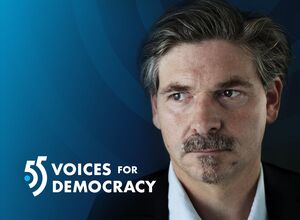
Information
Most political scholars today agree: political parties, at least in Europe, are past their peak. Approval ratings for parties are on a steady decline and membership is dwindling. But from Podemos in Spain and Syriza in Greece to the rightwing populist Alternative für Deutschland, the past years have also brought about new political parties that have—at least ostensibly—integrated into existing political systems. Is it thus accurate to talk about a crisis of political representation today? How might political legitimization and representation be produced in the future? And which role will parties and political media play?
Political philosopher Jan-Werner Müller (Princeton) will be speaking at the Thomas Mann House as part of the series “55 Voices for Democracy”. The series “55 Voices for Democracy” is inspired by the 55 BBC radio addresses Thomas Mann delivered from his home in California to thousands of listeners in Germany, Switzerland, Sweden, and the occupied Netherlands and Czechoslovakia between October 1940 and November 1945. In his monthly addresses, Mann spoke out strongly against fascism, becoming the most significant German defender of democracy in exile.
Building on this legacy, the series brings together internationally-esteemed intellectuals, scholars, and artists to present ideas at the Thomas Mann House for the renewal of democracy—among them Orhan Pamuk, Bruce Ackerman, Ananya Roy, Timothy Snyder, Francis Fukuyama and Seyla Benhabib. The event with Jan-Werner Müller will be moderated by political scientist Dawn Nakagawa, executive vice president of the Berggruen Institute.
Participants
Jan-Werner Müller teaches political theory and history of ideas at Princeton University. He studied at FU Berlin, University College London, University of Oxford and Princeton University. His book “What is Populism?” was translated into various languages and is regarded as a central text for the understanding of current political developments. Jan-Werner Müller comments regularly on current affairs; he writes, among others, for Foreign Affairs, Neue Zürcher Zeitung, New York Times and Süddeutsche Zeitung. Last year his book “Furcht und Freiheit. Für einen anderen Liberalismus” (“Fear and Freedom: For a different Liberalism”) was published by Suhrkamp.
Dawn Nakagawa is Executive Vice President of the Berggruen Institute. The institute is aiming to deepen our understanding of the great developments of our time and to foster appropriate political institutions. Areas of activity of the institute include the future of democracy, the transformation of the human, globalization and economic change. Before her position at the Berggruen Institute, Dawn Nakagawa was active for the Pacific Council on International Policy in Los Angeles and the consulting firm McKinsey. She holds degrees from McGill University and the Chicago Booth School of Business.
Partners
Media partners for the series are Deutschlandfunk, Los Angeles Review of Books and Süddeutsche Zeitung.



Villa Aurora & Thomas Mann House e. V. is supported by the German Federal Foreign Office and Federal Government Commissioner for Culture and the Media.


Panel Discussion: "The Habitus of Power: Female Presidents in TV Series" [CANCELLED]
USC Max Kade Institute (2714 S Hoover St Los Angeles, CA 90007)

Information
While the election year is bringing considerable interest in whether or not a woman may conquer the White House for the first time, female presidents have long become a fictional reality in various TV shows.
From House of Cards' Claire Underwood to Allison Taylor in 24 and Elizabeth McCord in Madame Secretary to Selena Meyer in Veep, female presidents are partially portrayed as competent leaders with a distinct thirst for power who expose or utilize the sexism of the political establishment. But often enough their presence in the highest office is also a cause for concern: these presidents have to meet the suspicion to have obtained the position illegitimately and equate to a crisis for the Oval Office, or even to the democratic system in its entirety.
Elisabeth Bronfen, cultural scientist at the University of Zurich, Heike Paul, americanist and Fellow at the Thomas Mann House and Ellen Seiter from the USC School of Cinematic Arts will reflect on current American TV series and how they prepare us for the first female US president. The event is moderated by historian Paul Lerner, director of the USC Max Kade Institute.
Participants
Elisabeth Bronfen is Professor of English and American Studies at the University of Zurich and Global Distinguished Professor at New York University. A specialist in the 19th and 20th century literature she has also written articles in the area of gender studies, psychoanalysis, film, cultural theory, and visual culture. Current research projects include: Serial Shakespeare; Mad Men and the American Cultural Imaginary; Seriality and twenty-first century DVD-novels; the gender of political sovereignty; and a monograph on Shakespeare's theater.
Heike Paul is professor for American Studies at Friedrich-Alexander-University Erlangen-Nuremberg (FAU) and Fellow at the Thomas Mann House, Los Angeles. Her research in cultural studies focuses especially on forms and functions of the sentimental and on dimensions of tacit knowledge. In 2018, Heike Paul was awarded with the Gottfried-Wilhelm-Leibniz-Preis of the German Research Foundation. She is co-author of The Comeback of Populism: Transatlantic Perspectives im Winter Verlag, 2019.
Ellen Seiter holds the Nenno Endowed Chair in Television Studies at the USC School of Cinematic Arts where she teaches courses on television and new media history, theory and criticism in the Critical Studies Division. She is the author of The Internet Playground: Children’s Access, Entertainment and Mis-Education (Peter Lang, 2005) and Television and New Media Audiences (Oxford, 1999). Her latest book, The Creative Artist’s Legal Guide: Copyright, Trademark and Contracts in Film and Digital Media Production was published in 2012 by Yale University Press.
Partners
This event is a cooperation of Villa Aurora & Thomas Mann House and USC.

Villa Aurora & Thomas Mann House e. V. is supported by the German Federal Foreign Office and Federal Government Commissioner for Culture and the Media.


Symposium with Heike Paul: "Disenchanted Democracy? Cultural Imaginaries of Order and Belonging in a Transatlantic Perspective" [CANCELLED]
River Den, Drake Performance Center, Ohio State University

Information
This symposium held on the campus of the Ohio State University brings together speakers from the U.S. and Germany to address aspects of democratic culture and its discontent in the present moment. The latter reveals itself in particular expressions of emotion and negative affect, such as anger, resentment, indignation, and rage, that often thrive on populist simplification and ‘othering’ of specific groups and/or individuals. This has prompted interventions by scholars, journalists, and activists to think about modes of dialogue and reconciliation across various kinds of divides and in different cultural registers.
This event seeks to add to the ongoing debate by historicizing the role of affect and feeling in the history of Western democracies and to develop new perspectives on questions of inclusion and exclusion in social, political, and cultural imaginaries with a view to different media (music, television series, etc.) and forms of political communication. In times of strained ‘official’ transatlantic relations and right-wing populist successes on both sides of the Atlantic, this symposium seeks to identify common ground and shared concerns in working through the current moment of crisis. Participants include Noëlle McAfee, Nikolai Blaumer, Elisabeth Bronfen, Katharina Gerund, Nadine Hubbs, Benjamin McKean, Heike Paul, Marie Rotkopf, Barry Shank, and Michelle Sizemore.
Programs
5 p.m. Symposium Opening by the Organizers
Keynote Address I: Noëlle McAfee (Emory U)
“Cherchez La Thing: The Melancholic Demands of Extremism”
Keynote Address II: Elisabeth Bronfen (Zurich U)
“Political Enchantments: The Vexed Question of
Belonging in The Americans”
Reception at Ohio State University
9 a.m. Michelle Sizemore (U of Kentucky, Lexington)
“The President’s Two Bodies and the People’s Two Voices.”
Heike Paul, Response to Michelle Sizemore
Marie Rotkopf (Hamburg/Leuphana U, Lueneburg)
“Who Is the Boss”
Lunch break
2 p.m. Benjamin McKean (OSU, Columbus)
“Populism and the Anxiety of Equality”
Katharina Gerund, Response to Benjamin McKean
Coffee break
Nadine Hubbs (U of Michigan, Ann Arbor)
“What if this Machine Really Does Kill Fascists?
Reckoning with Music’s Political Power”
Barry Shank, Response to Nadine Hubbs
Final discussion & wrap-up
Participant

Heike Paul was born in Koblenz in 1968. From 1987 to 1994, she studied American Studies, Political Science, and English Studies at Goethe University Frankfurt and at the University of Washington, Seattle. After her master’s degree, she obtained her doctorate in the context of the research training group “Gender Difference and Literature” at LMU Munich and subsequently worked as a postdoc and assistant professor at Leipzig University, where she earned her postgraduate degree (Dr. phil. Habil.) in 2004. In the same year, she was appointed chair of American Studies at Friedrich-Alexander-University Erlangen-Nuremberg. Her research in cultural studies focuses especially on forms and functions of the sentimental (Global Sentimentality Project) and on dimensions of tacit knowledge. Heike Paul is a member of the Bavarian Academy of Sciences and Humanities and director of the Bavarian American Academy, in which she is deeply committed to transatlantic networking.
Partners
The event is a collaboration with the Ohio State University and the Friedrich-Alexander University Erlangen-Nürnberg


#MutuallyMann – A Virtual Reading Initiative
Worldwide
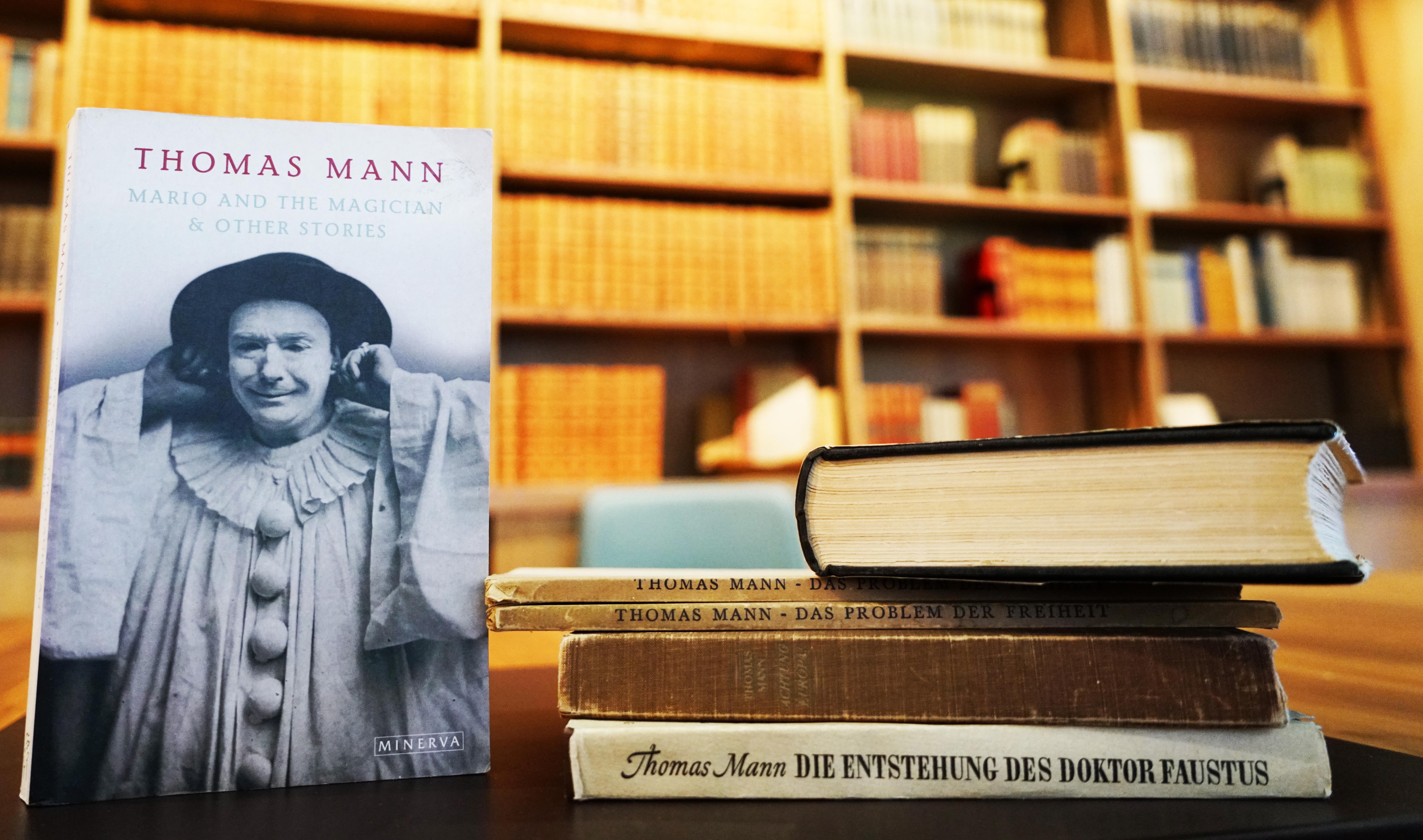
Information
We, the Thomas Mann House and the S. Fischer Verlag publishing house, invited readers all over the world to read Thomas Mann’s novella Mario and the Magician over the course of one week and share thoughts, questions, ideas or favorite quotes with each other.
For the initiative, we gathered a group of exciting #MutuallyMann reporters, renowned authors and intellectuals to share their thoughts on the book, too! Participants included:
Tobias Boes, Professor of German and literary scholar at University of Notre Dame; Adrian Daub, Professor of Literature at Stanford; Veronika Fuechtner, Professor of German at Dartmouth; Elisabeth Galvan, Professor of German Literature at Università di Napoli L’Orientale; Morten Høi Jensen, author and critic working on a book about The Magic Mountain; William Kinderman, acclaimed pianist and Professor at the UCLA Herb Alpert School of Music; Friedhelm Marx, Thomas Mann Fellow and Professor of German Literature; Andreas Platthaus, Thomas Mann Fellow and head of literature and literary life at Frankfurter Allgemeine Zeitung; Hedwig Richter, Professor of Modern and Contemporary History; Donna Rifkind, author of The Sun and Her Stars: Salka Viertel and Hitler’s Exiles in the Golden Age of Hollywood; Alex Ross, music critic for The New Yorker, Kai Sina, Professor of German Literature; Katharina Sykora, Thomas Mann Fellow and art historian and Hans Wißkirchen, President of the German Thomas Mann Society.
From April 27 to May 1, users posted their opinions, photos and comments on social media with the hashtag #MutuallyMann. We channeled and collected many of them and those of our reporters on this blog. Check out our social wall to read all the contributions by our experts and see what was happening on #MutuallyMann.
Find all information on the #MutuallyMann website.
Partner
This initiative is a cooperation of the Thomas Mann House and the S. Fischer Verlag publishing house.

Villa Aurora & Thomas Mann House e. V. is supported by the German Federal Foreign Office and Federal Government Commissioner for Culture and the Media.


#Mann's LA
Worldwide

Information
Which places did he and his family visit? Who were his friends and acquaintances? What were the local concerns that kept him busy and are still hot topics in LA today? From fellow exile writers such as Feuchtwanger or Döblin and philosophers like Adorno and Horkheimer, to famous artists like Aldous Huxley and a film premiere in Hollywood: By granting access to diary entries, letters to friends, historical documents, maps, and anecdotes, the Thomas Mann House invites you to discover #MannsLA!
Episodes

Hanns Eisler - Composer and "Communist in a Philosophical Sense."
"The word 'friend' is a bit too intimate, but one can almost call it a paternal affection," composer Hanns Eisler described his relationship with Thomas Mann in retrospect. After fleeing Berlin and working as a visiting professor at the New School for Social Research in New York, Hanns and his wife Lou had settled in Los Angeles in 1942. Two years later, he and Mann met for the first time at a dinner at Arnold Schoenberg's house in Brentwood.

Theodor W. Adorno. By Alex Ross (music critic for the The New Yorker and author of the book The Rest Is Noise.
Of all the German-speaking émigrés who moved to the Los Angeles area during the Nazi era, the philosopher and critic Theodor Wiesengrund Adorno had perhaps the most openly antagonistic relationship with Southern California culture. Yet Adorno’s years in California were by no means unproductive. He may have been intellectually unhappy and financially pressed, but he benefited from close observation of Hollywood culture and formed friendships with a number of the émigrés.

Lion Feuchtwanger’s Villa Aurora and A Mutual Friend… By Friedel Schmoranzer (Villa Aurora)
Thomas Mann was a frequent guest at fellow writer Lion Feuchtwanger’s house. Mann called the Spanish revival villa on 520 Paseo Miramar a “true castle by the sea.” The Feuchtwangers were generous hosts and organized readings in Lion’s study. Thomas Mann used to be the guest of honor and moderator of theses evenings in German, whereas Charlie Chaplin used to have the first word at the English readings. Mann, a movie buff, admired Chaplin and enjoyed the Hollywood glamour Chaplin added to these events.
Read the full episode on Instagram, Facebook and Twitter

The NBC Studios
In 1941, the BBC approached Thomas Mann to ask him to address his fellow countrymen regularly in short radio speeches. He later reported that he could hardly believe this great opportunity at first: The regular broadcasts enabled the exiled writer to politically influence the German population in their mother tongue. Until his last speech in November 1945, Mann drove every month from Pacific Palisades to Hollywood, where he recorded his speeches for Germany in the NBC's Recording Department.
Read the full episode on Instagram, Facebook and Twitter

The Hollywood Fairfax Temple
After taking a closer look at the relationship between Mann and the First Unitarian Church, we would like to focus on Mann’s relationship with Rabbi Jacob Sonderling and the Society for Jewish Culture - Fairfax Temple. By 1941, when the United States entered the war, more than 6,000 German Jews had made it to Los Angeles, making the city the second-largest center of German-speaking Jews in America. An important hub and supporting organization for Jewish art and culture in Los Angeles was the Fairfax Temple and its Rabbi, Jacob Sonderling, who had a good relationship with Thomas Mann.

Salka Viertel. By Donna Rifkind, author of "The Sun and Her Stars: Salka Viertel and Hitler's Exiles in the Golden Age of Hollywood."
In her 1969 memoir "The Kindness of Strangers," the screenwriter Salka Viertel confessed that she didn’t remember the first time she was introduced to her good friend Thomas Mann. But she supposed that it must have been during the summer of 1940 in Los Angeles, most likely at a banquet for the Emergency Rescue Committee, whose work on behalf of European refugees both Viertel and Mann supported.

La La Land
During the decade the Manns lived in ’La La Land,’ Thomas and Katia embraced the city's film culture. Mann’s favorite theater seemed to be the Fox Village Theater in Westwood. Built in 1931, the theater with the iconic 170-foot tower was only 15 minutes by car from his home in Pacific Palisades and became a highly frequented spot for the Manns’ movie nights. They visited the theater with the remarkable Spanish modernist architecture on a regular basis.
Read the full episode on Instagram, Facebook and Twitter

Nelly Mann. By Michaela Ullmann, Exile Studies Librarian.
As the Nazis assumed power in February 1933, Heinrich Mann was one of the first intellectuals to flee Germany with his wife, Nelly. Like Thomas and Katia Mann, Heinrich and Nelly initially found refuge in southern France until the country fell to German occupation, whereupon they fled Europe.
Read the full episode on Instagram, Facebook and Twitter

Union Station
In the first years of his American exile, Thomas Mann was constantly on the move. From New York to Ottawa, Austin, Minneapolis, Seattle and LA - all in all, he gave well over one hundred lectures during this time. The aim was to convince the Americans of a united front against Nazi Germany.
Read the full episode on Instagram, Facebook and Twitter

First Visit in LA: The Shrine Auditorium
In February 1938, Thomas, Katia and Erika left Zurich for Thomas Mann’s first lecture tour throughout the United States. On March 23, they arrived in LA for the first time, on a ‘Streamliner’ train which Mann nicknamed ‘rocket train.’ He held his lecture, titled "The Coming Victory of Democracy," at the Shrine Auditorium, a venue in the shape of an amphitheater that could host more than 6000 people.
Read the full episode on Instagram, Facebook and Twitter

The Ongoing Housing Crisis
The struggle for social housing concepts and solutions is a long-lasting issue for the city of Los Angeles. On May 20, 1952, Thomas Mann noted in his diary: “‘Daily News’ publication on the scandalous slum housing in Los Angeles. Houses occupied by large families with children, living in one room for $45 a month. The owner lives in Hollywood. Huge cash outlays for armaments and external power while bills for housing improvements are voted down."
Read the full episode on Instagram, Facebook and Twitter

Alfred Döblin – Love Thy Enemy. By Stefan Keppler-Tasaki, University of Tokyo.
The Jewish-German novelist and physician Alfred Döblin arrived in Los Angeles after an excruciating flight through Europe that he described in his biography “Destiny’s Journey.” The exile community welcomed him in a ceremony held at the First Unitarian Church on October 26, 1940. Thomas Mann, although a frequent visitor of the place, was missing that day since he had to attend to his brother Heinrich’s arrival in New York.
Read the full episode on Instagram, Facebook and Twitter

Bruno Walter – A Concert with Obstacles
After fleeing from Germany in 1933, the world-famous conductor and composer Bruno Walter settled with his family in their new home on 608 N. Bedford Drive in Beverly Hills. Walter, who conducted the LA Philharmonic at the time, was already friends with the Manns from his time with the Munich State Opera in the 1910’s. They revived their friendship in Los Angeles.
Read the full episode on Instagram, Facebook and Twitter

Max Horkheimer – Watching the Rhine (from LA)
Max Horkheimer moved from New York into a bungalow on 13524 D'este Drive, Pacific Palisades in April 1941. While scouting for a new home in Los Angeles in 1940, he recalled in an interview that a realtor "showed him a house and, as realtors do, launched into praise of the neighborhood. Just recently, the realtor explained, another house had been sold to another gentleman from Germany — 'a Mr. Mann.’”
Read the full episode on Instagram, Facebook and Twitter
Partners
Villa Aurora & Thomas Mann House e. V. is supported by the German Federal Foreign Office and Federal Government Commissioner for Culture and the Media.


Exhibition: Thomas Mann »DEMOCRACY WILL WIN!«
Stiftung Buch-, Medien- und Literaturhaus München (Salvatorplatz 1, 80333 München)
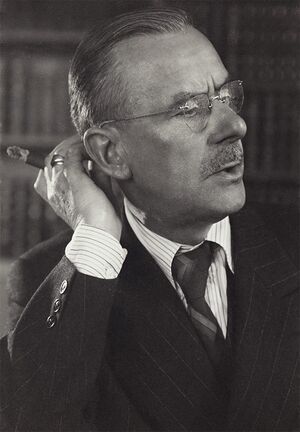
Information
»Es ist mit der Selbstverständlichkeit der Demokratie in aller Welt eine zweifelhafte Sache geworden. Es ist die Stunde gekommen […] für eine Selbstbesinnung der Demokratie, für ihre Wiedererinnerung, Wiedererörterung und Bewußtmachung – mit einem Wort: für ihre Erneuerung im Gedanken und im Gefühl.« - THOMAS MANN: VOM ZUKÜNFTIGEN SIEG DER DEMOKRATIE, 1938
We are currently seeing the fundamental values of democracy being called into question. Populism and nationalism are placing democratic societies under massive pressure. The exhibition " Thomas Mann: Democracy will win!" of the Literaturhaus München represents a concrete contribution to the current debate about our democracy. It is intended to contribute to its "recollection, reconsideration and reawakening", to the "renewal of democracy in thought and feeling".
*Euro 7.- / 5.-
STUDENT SPECIAL: On Mondays students pay only 2 Euros
Partners
A cooperation with LITERATURHAUS MÜNCHEN. Supported by the German Federal Foreign Office.
Symposium with Friederike Meyer: "Pandemic Urbanism"
Online
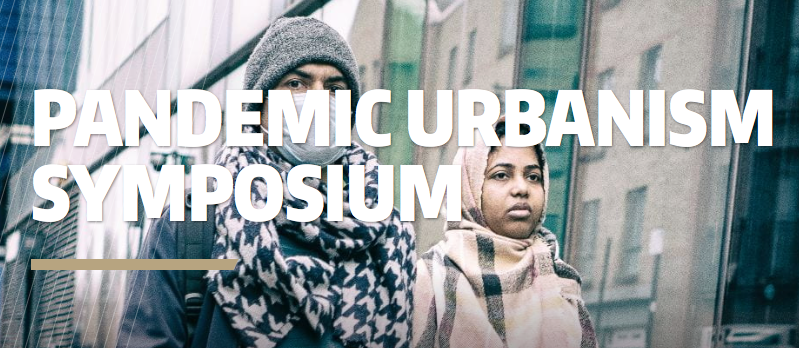
Information
Thomas Mann Fellow Friederike Meyer will give her presentation at the Pandemic Urbanism Symposium in a session titled “Urban Form Beyond the Norm,” from 10:15 – 11:15 AM on May 29, 2020, coauthored by Thomas Mann Fellow Doris Kleilein.
Density, Mobility and Common Good – Towards the Post Corona City
The pandemic reveals the advantages of robust and resilient cities as well as the consequences of insufficient or nonexistent urban planning. The collective experience in the state of emergency provides a chance to accelerate long-overdue demands and concepts for the climate-neutral city in its consequent implementation.
Everything that makes cities worth living in also helps in a crisis like this: a climate-friendly active mobility, flexible spatial models for living and working, affordable housing, sufficient public space, regional economic cycles, inclusive neighborhoods and a well-organized administration. Resiliency depends on how density is organized and designed.
Facing climate change, the dense, mixed-use city is more than ever an answer to the global dilemma of more and more people having to share resources and spaces that are coming to an end. Based on built and proposed projects from Berlin and other European cities, the lecture will outline in which areas the crisis can be a catalyst for urban development towards the common good and what political action needs to be taken.
Friday, May 29, 2020, 9am – 5pm PDT
This event is free and open to all. Registration is required.
Link for remote participation will be provided to registrants.
Participant
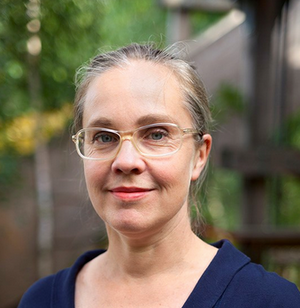
Friederike Meyer, born 1972 in Dresden, studied architecture at the RWTH Aachen and as a DAAD scholarship holder at the University of Washington in Seattle. She also trained as a journalist at the Evangelische Medienakademie in Berlin. Today, she works as an architecture journalist in Berlin. She is interested in the intersection of architecture, urban planning and society. From 2000 to 2017 she was editor of the architecture journal Bauwelt; for several years she has been working as an author for exhibitions and books, moderator and juror. She teaches architectural communication in Kaiserslautern. Friederike Meyer has been editor-in-chief of the newsroom of BauNetz since 2017.
Partner
Organized by current and recent University of Washington doctoral students, with support from the College of Built Environments, the PhD Program in the Built Environment and the Interdisciplinary PhD Program in Urban Design and Planning.

“Confronting the Past Abroad:" A Conversation with Ayham Majid Agha, Mohamed Amjahid, Olga Grjasnowa and Josh Kun
Online
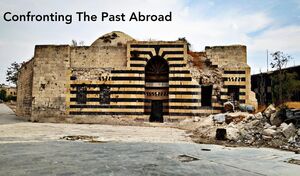
Information
A quarter of the population in Germany today has a migrant background. Many refugees and migrants seek protection from the violence and war atrocities they have experienced in their countries of origin. Their experiences of injustice have so far played only a minor role in the German political discourse.
In the western German city of Koblenz, a process is currently underway which could help change this. There, the former head of investigation of the Syrian State Security and another former official are accused of torture in several thousand cases and multiple murders. The trial is a sign that the world will not forget. As in the United States, crimes against humanity can be prosecuted by the German justice system even if they were neither committed in Germany nor if Germans were among the perpetrators or victims.
Thomas Mann Fellow Mohamed Amjahid has reported on the groundbreaking trial for the German weekly DIE ZEIT. Together with the writer Olga Grjasnowa, the Syrian theater maker Ayham Majid Agha and the music scholar, author and curator Josh Kun, he will speak about the violent experiences of migrants in Germany and the US and discuss how these are reflected in contemporary literature, theater and music.
The event will be streamed online on Sunday, June 14, 2020 at 11 am (PST)
Participants
Ayham Majid Agha is a theater director and actor at Gorki Theater in Berlin. He was trained as an actor at the Academy of Performing Arts in Damascus and studied in Italy and the UK. After a successful career at home, he left Syria. He has been affiliated with the Gorki Theater since 2016. In the season 2017/18 his play “Skelett eines Elefanten in der Wüste” premiered at the Gorki which was invited to the “Radikal Jung” Festival where Ayham Majid Agha won the Young Critics Award. He is married to the novelist Olga Grjasnowa.
Mohamed Amjahid was born as the son of so-called guest workers in Frankfurt am Main. He studied political science in Berlin and Cairo and conducted research on various anthropological projects in North Africa. During his studies, he worked as a journalist for taz, Frankfurter Rundschau and Deutschlandfunk. He has worked as a political reporter for the weekly newspaper Die Zeit and the Zeit Magazin. Anthropologically and journalistically, he focuses on human rights, equality and upheaval in the US, Europe, the Middle East and North Africa. Mohamed Amjahid is a 2020 Thomas Mann fellow.
Olga Grjasnowa was born in Baku, Azerbaijan. In 1996 her family emigrated and settled in Germany as “quota refugees”, where she learned German at the age of 11. After studying abroad in Leipzig, Poland, Russia, and Israel, Grjasnowa took up dance studies at the Freie Universität Berlin. Her critically acclaimed debut novel “All Russians Love Birch Trees” won the Klaus-Michael Kühne Prize and the Anna Seghers Prize in 2012. Her latest book “City of Jasemine" came out in 2017. Grjasnowa is married to theatre director and actor Ayham Majid Agha.
Josh Kun is a music scholar, author, and curator exploring the ways in which the arts and popular culture are conduits for cross-cultural exchange. He is Director of the USC Annenberg School of Communication, where he holds the Chair in Cross-Cultural Communication. His work has an emphasis on the impact of displacement, relocation, deportation, and immigration on contemporary global music practices. In 2016 he was named a MacArthur Fellow and in 2018, he was Bosch Fellow at the American Academy in Berlin.
Partners
An event by the Thomas Mann House in collaboration with 1014 and Miry's List.


"Resilience and Adaptation: Social Inequity and the Corona Crisis." Discussion with Jutta Allmendinger
Online
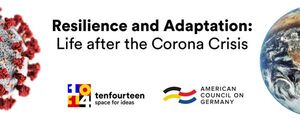
Information
The combined public health and economic crises have exacerbated social inequity in our societies. Social injustice and police brutality have led to widespread protests and unrest. From essential workers risking their lives on minimum wage to poor living conditions to inadequate access to health care and the digital world, we must right many existing wrongs in the United States and in Europe. German sociologist Prof. Dr. Jutta Allmendinger and American community leader Bill Strickland will discuss how to heal and preserve the fabric of our communities. This event is being held with support from the Thomas Mann House.
Participants
Prof. Dr. Jutta Allmendinger is Professor of Sociology at the Humboldt University in Berlin and President of the Wissenschaftszentrum Berlin für Sozialforschung (WZB) (Social Science Research Center Berlin). She received her training in sociology and social psychology at the University of Mannheim (M.A. 1982), the University of Wisconsin, Harvard University (Ph.D. 1989), and the Free University of Berlin (Habilitation 1993). In 2019, she was a fellow in residence at the Thomas Mann House in Los Angeles.
Dr. Allmendinger worked as Researcher at the Center for Survey Research and Methodology (Zentrum für Umfragen, Methoden und Analysen, ZUMA) in Mannheim (1981-83), as Research Assistant at Harvard University and at the Center for Educational Sciences at the University of Wisconsin (1984-88). From 1988 to 1991, she was Senior Researcher at the Max Planck Institute for Human Development in Berlin. From 1999-2002, she was Chairperson of the German Society for Sociology (DGS), from 1992 to 2007 she was Full Professor of Sociology at the University of Munich and, from 2003 to 2007, Director of the Institute for Employment Research (Institut für Arbeitsmarkt- und Berufsforschung der Bundesagentur für Arbeit, IAB) in Nürnberg. In the academic year 1991-1992 she was Fellow at the Harvard Business School in Cambridge (Program for Organizational Behavior) and, in the academic year 1996-1997, Fellow at the Center for Advanced Study in the Behavioral Sciences at Stanford.
Dr. Allmendinger holds memberships in the Scientific Commission of the German Science and Humanities Council (Wissenschaftsrat), the Berlin-Brandenburg Academy of Sciences and Humanities (BBAW), the expert commission “Research und Innovation” of the German Federal Ministry of Education and Research, the German Academy of Natural Scientists Leopoldina, and in the Foundation Council of the European University Viadrina Frankfurt (Oder). She is editor in chief of the Zeitschrift für Arbeitsmarkt Forschung (ZAF) (Journal for Labor Market Research) and was coeditor of the Journal of European Societies (1998-2001). Dr. Allmendinger has published 11 books and over 140 articles, mostly in peer-reviewed journals on social inequality, educational sociology, labor market research, demography, and social stratification.
William E. Strickland grew up in the Manchester neighborhood of Pittsburgh, Pennsylvania, and graduated from Oliver High School. He then attended the University of Pittsburgh, where as an undergraduate he founded the Manchester Craftsmen's Guild as an after-school program to teach children pottery skill in his old neighborhood. He graduated cum laude with a bachelor's degree in American history and foreign relations in 1970. Following graduation he continued to build the Manchester Guild into an innovative nonprofit agency that uses the arts to inspire and mentor inner-city teenagers. In 1972 he took over the Bidwell Training Center that trains displaced adults for jobs.
He has served on the boards of the National Endowment for the Arts, Mellon Financial Corporation, and the University of Pittsburgh. For his work, Strickland has won various awards including a MacArthur Fellowship "genius" award in 1996. He has been honored by the White House, and received the Goi Peace Award in 2011.
In June 2018, Strickland announced that he would be stepping down from his role as president and CEO of Manchester Bidwell Corp., but that he will remain on as executive chairman. He had served as the leader of the organization for 50 years.
Partners
An event by 1014 and the American Council on Germany with support from the Thomas Mann House.


#LNDI2020: The public space in times of crisis
Online
Information
Global crises shape the public space. Due to the Covid 19 pandemic, life has largely shifted into the private and digital realms. It will probably be a long time before subways and concert halls fill up again, while at the same time hundreds of thousands take to the streets to protest against police violence and racism. How must the public space change in order to reconcile social participation and social distancing? How can life despite recurring crises be made socially acceptable? Urban planning and architecture are increasingly asked to investigate the resilience of spaces.
Thomas Mann Fellows Doris Kleilein and Friederike Meyer will talk with Oliver Elser and Felix Weisbrich about the impressions and events of the past months and ask about their significance for the public space. The conversation will be in German.
Participants
Oliver Elser is curator at the German Museum of Architecture (DAM) in Frankfurt am Main. In 2016 he curated "Making Heimat", the German Pavilion at the Venice Architecture Biennale. At DAM he has shown exhibitions on Brutalism, Postmodernism, 20th century architectural models and Simon Ungers. In 2012/13 he was substitute professor for scenography at the University of Applied Sciences Mainz. As a freelance curator he conceived the exhibition "Housing Models: Experimentation and Everyday Life" (Vienna, Sofia and Belgrade) together with Michael Rieper. Since 1999, he has developed the project "Special Models" together with the artist Oliver Croy, last presented in 2013 at the Art Biennale in Venice in the "Palazzo Enciclopedico".
Doris Kleilein is an architect, author and since 2018 director of the architectural book publishing house JOVIS in Berlin. After studying architecture in Berlin and Winnipeg, she co-founded the architectural office bromsky and worked as a freelance author for radio, print and online with a focus on architecture, city and politics. From 2005 to 2018 she was editor of the architecture journal Bauwelt, where she published mainly on new housing models, urban development and the effects of migration on architecture and urban planning. In cooperation with Ballhaus Naunynstraße she curated performative courses in urban space. In 2014 she was appointed to the Women's Advisory Council of the Berlin Senate Department for Urban Development and Environment.
Friederike Meyer is an architecture journalist in Berlin. She is interested in the interface between architecture, urban development and society. She studied architecture at the RWTH Aachen and as a DAAD scholarship holder at the University of Washington in Seattle. She trained as a journalist at the Protestant Media Academy in Berlin and has since worked as an author, presenter and juror. In Kaiserslautern she teaches architectural communication. From 2000 to 2017 she was editor of the architecture journal Bauwelt. Since 2017, she has been editor-in-chief of the BauNetz newsroom.
Felix Weisbrich is head of the Friedrichshain-Kreuzberg Roads and Green Spaces department and is considered the mastermind behind the Berlin pop-up bike lanes, which were set up in a very short time during the first Corona months. He studied forestry science and worked in various functions in the forestry administration of Mecklenburg-Vorpommern: as forestry policy advisor in the Ministry of Agriculture in Schwerin, as logistician for energy wood production and as head of the forestry office in Bad Doberan. He was involved in questions of administrative modernization, represented the highest forestry authority in legislative procedures and in conflicts over construction and use, e.g. in the coastal forests around Heiligendamm. In his current position he is responsible for complex public spaces such as Görlitzer Park and the traffic systems in one of the most densely populated urban areas in Europe.
Partners
Organized by Thomas Mann House, the German Museum of Architecture (DAM) in Frankfurt am Main, Jovis Verlag and the online magazine BauNetz as part of the German Federal Foreign Office's Long Night of Ideas 2020.
The Thomas Mann Fellowships are funded by the Berthold Leibinger Stiftung, the Robert Bosch Stiftung and the Alfried Krupp von Bohlen und Halbach-Stiftung.
The German Federal Foreign Office and its partners cordially invite you to take part in the fifth "Long Night of Ideas" on June 19. How can culture continue to play its vital role even in times of Corona? How can it unfold its unique powers even in times of crisis? The "Long Night of Ideas", – for the first time a digital program only, will approach these questions.
From the topic of sustainability of the club scene to Southeastern European films and the science slam on European science policy: under the title "Cultures of the Future - Future of Cultures", more than a dozen digital events will deal with the future of cultural life. Because: Especially in times of Corona, when direct human contact must remain limited, overcoming this physical distance through culture is all the more important - for the individual as well as for society. The Long Night of Ideas is a team effort by the Federal Foreign Office, its intermediary organizations and other strong partners from civil society, research and science organizations and private foundations. | #LNDI2020
More information on the Long Night of Ideas 2020 and the complete program under www.diplo.de/lndi2020

Salon am Hügel: Auf den Palisaden
Online
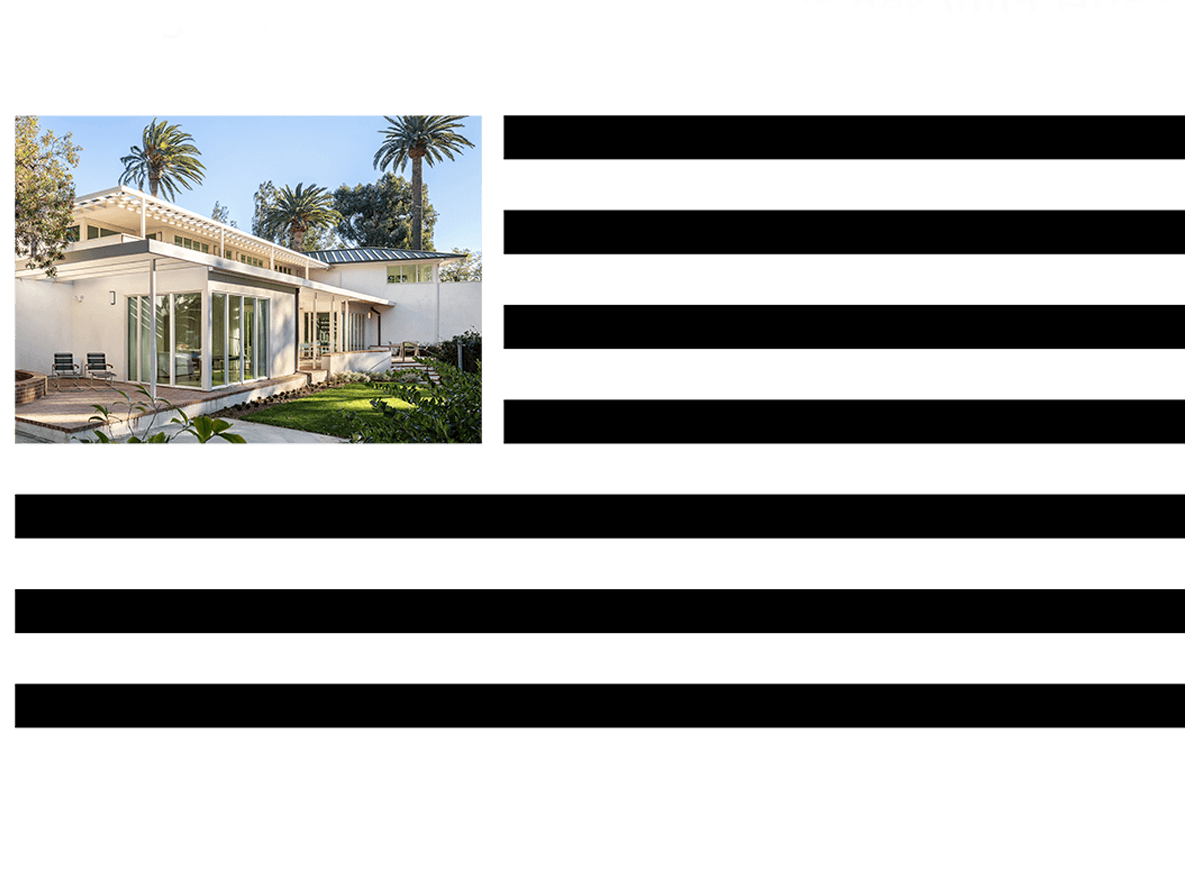
Information
As part of the event series "Salon am Hügel", artist Thomas Demand and FAZ columnist and author Andreas Platthaus will meet at Villa Hügel on August 20 at 6 pm. The joint event of the Alfried Krupp von Bohlen und Halbach Foundation and the Thomas Mann House will be broadcast in a live stream.
Platthaus and Demand will talk about Thomas Mann's influence on their artistic activities, about their perception of America and Trump, houses as a subject and much more. The discussion will be accompanied by a reading from Andreas Platthaus' new book, which he wrote during his stay at the Thomas Mann House in Los Angeles in 2019. The book, entitled "On the Palisades", was initially written in the form of a daily blog reflecting Platthaus' encounters and impressions as a Thomas Mann Fellow. For the photo artist Thomas Demand, who lives and works in Los Angeles, houses and places play a central role.
Find more information and our live stream at www.krupp-stiftung.de/salonamhuegel
Participants
Andreas Platthaus has been editor of the feature section of the Frankfurter Allgemeine Zeitung since 1997 and is currently head of the department "Literature and Literary Life". In 2017 he was appointed Chevalier des Arts et des Lettres by the French Republic. During his fellowship at Thomas Mann House, Platthaus worked primarily on research for his new book about the Bauhaus in exile.
Thomas Demand is known for his large-format photographs. By creating three-dimensional, mostly life-size models from paper and cardboard of places, whose themes often refer to found images from the mass media, and by photographing the resulting sceneries, he creates his very own artifacts that play with the viewer's ideas of fiction and reality. His works are represented in numerous museums and collections, including the Museum of Modern Art, New York, the Guggenheim Museum, New York, and the Tate Modern, London.
Partner
An event of the Alfried Krupp von Bohlen und Halbach Foundation and Thomas Mann House.
The Thomas Mann Fellowships are supported by the Berthold Leibinger Stiftung, the Robert Bosch Stiftung and the Alfried Krupp von Bohlen und Halbach-Stiftung.
Radical Diversity: Discussion Series with Mohamed Amjahid and Max Czollek
Online

Information
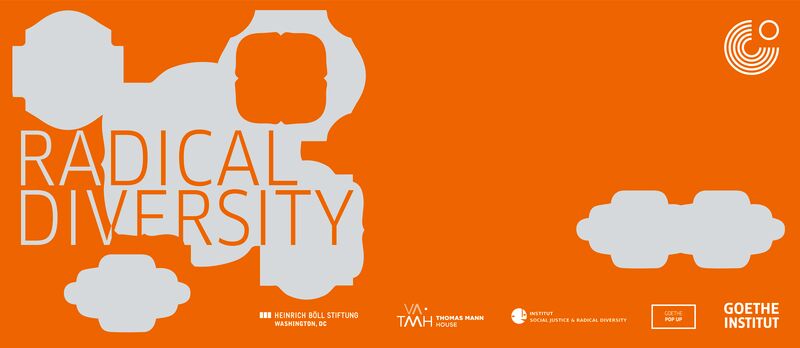
Mohamed Amjahid and Max Czollek will engage in a conversation with guests in the U.S. about strategies for a more open, diverse and just society in Germany and the U.S. Thomas Mann Fellow and author Mohamed Amjahid and poet and publicist Max Czollek talk about political activism and diversity. In their work, they discuss the politics of history in the discourse on integration in both countries and raise the question: How is social diversity expressed in politics and art in both countries? What are counter-concepts to white, hegemonic culture?
The first guest in the series is Priscilla Layne, one of the pioneers of Black German Studies and a Professor at the University of North Carolina at Chapel Hill.
Participants
Mohamed Amjahid was born as the son of so-called guest workers in Frankfurt am Main. He studied political science in Berlin and Cairo and conducted research on various anthropological projects in North Africa. During his studies, he worked as a journalist for taz, Frankfurter Rundschau and Deutschlandfunk. He has worked as a political reporter for the weekly newspaper Die Zeit and the Zeit Magazin. Anthropologically and journalistically, he focuses on human rights, equality and upheaval in the US, Europe, the Middle East and North Africa. Mohamed Amjahid is a 2020 Thomas Mann fellow.
Dr. Max Czollek was born in Berlin in 1987, where he still lives and works today. In 2012, he received a degree in political science from the Technical University of Berlin (Technische Universität Berlin). In 2016, he completed his doctorate studies at the Center for Research on Antisemitism (Zentrum für Antisemitismusforschung, ZfA), also at the same Technical University. Since 2009, Czollek has been a member of poetry collective G13, which has published books and organized lectures.
Priscilla Layne is Professor of German and African American Diaspora Studies at the University of North Carolina at Chapel Hill. Her publications deal with the themes of "Blackness" in German film, protest movements in the post-war period and Turkish-German culture. She is the author of "White Rebels in Black: German Appropriation of African American Culture", which was published by the University of Michigan Press in 2018. She is currently working on a monograph on Afro-German Afrofuturism.
Partners
"Radical Diversity" is presented by the Goethe Institutes in North America in cooperation with Thomas Mann House, the Institute for Social Justice & Radical Diversity, funded by the Heinrich Böll Foundation North America.




Paulskirche: 55 Voices for Democracy
Online

Information
In his monthly addresses, Mann spoke out strongly against fascism, becoming the most significant German defender of democracy in exile. Thomas Mann’s conviction that the “social renewal of democracy” is the condition and guarantee of democracy’s victory is more relevant now than ever. Building on that legacy, the series brings together internationally renowned intellectuals, scientists, and artists to present their ideas on the renewal of democracy.
The series is presented by the Thomas Mann House in cooperation with Deutschlandfunk, the Los Angeles Review of Books and Süddeutsche Zeitung, funded by the Federal Foreign Office, the Federal Government Commissioner for Culture and Media and the Berthold Leibinger Foundation.
From September 2nd on, Frankfurt's St. Paul’s Church will permanently present the Lectures in its exhibition. The ceremony on the occasion of the opening of the 55 Voices media stations, with speeches by Thomas Mann Fellows Jutta Allmedinger and Rainer Forst as well as Honorary Fellow Frido Mann, will be broadcast as a live stream.
Participants
Jutta Allmendinger ist eine deutsche Soziologin. Nach Stationen unter anderen an der Harvard University, der LMU und dem Max-Planck-Institut für Bildungsforschung, ist Prof. Allmendinger seit April 2007 Präsidentin des Wissenschaftszentrums Berlin für Sozialforschung. 2013 erhielt sie das Bundesverdienstkreuz erster Klasse der Bundesrepublik Deutschland. 2014 wurde ihr die Ehrendoktorwürde der Universität Tampere verliehen. Seit 2017 ist sie Mitherausgeberin der Wochenzeitung „Die Zeit“ Im Jahr 2018 gehörte Jutta Allmendinger zu den ersten Thomas Mann Fellows im eben eröffneten Thomas Mann House in Los Angeles.
Rainer Forst ist Professor für Politische Theorie und Philosophie an der Goethe-Universität Frankfurt. Seit 2007 ist er Mitbegründer und Sprecher des Forschungsverbunds „Normative Ordnungen“ und seit 2009 der DFG-Kollegforschergruppe „Justitia Amplificata“. Darüber hinaus ist er seit 2012 Direktor der DFG-Forschungsgruppe „Transnationale Gerechtigkeit“. Im Jahr 2012 erhielt er den Gottfried Wilhelm Leibniz-Preis der DFG. Er ist ordentliches Mitglied der Berlin-Brandenburgischen Akademie der Wissenschaften und Corresponding Fellow der British Academy. Darüber hinaus ist er Mitglied des Executive Editorial Committee von „Political Theory“ und in unterschiedlichen Funktionen an zahlreichen weiteren internationalen Zeitschriften beteiligt. Rainer Forst wird sich im Jahr 2021 als Thomas Mann Fellow in Los Angeles aufhalten.
Frido Mann, in Kalifornien geboren und Enkel von Thomas Mann, arbeitete nach dem Studium der Musik, der Katholischen Theologie und der Psychologie viele Jahre als klinischer Psychologe in Münster, Leipzig und Prag. Er lebt heute als freier Schriftsteller in München. Zuletzt sind von ihm erschienen „An die Musik. Ein autobiographischer Essay“ und, zusammen mit Christine Mann, „Es werde Licht. Die Einheit von Geist und Materie in der Quantenphysik“. Im August 2018 ist „Das Weiße Haus des Exils“ über das Thomas Mann House in Los Angeles im Fischer Verlag erschienen.
Partner
A cooperation with the City Council of Frankfurt am Main
Worldwide Reading in support of the Democracy movement in Hong Kong
Online
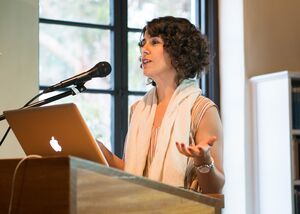
Information
www.literaturfestival.com
Radical Diversity: Discussion Series with Mohamed Amjahid and Max Czollek (Houston)
Online

Information

Mohamed Amjahid and Max Czollek will engage in a conversation with guests in the U.S. about strategies for a more open, diverse and just society in Germany and the U.S. Thomas Mann Fellow and author Mohamed Amjahid and poet and publicist Max Czollek talk about political activism and diversity. In their work, they discuss the politics of history in the discourse on integration in both countries and raise the question: How is social diversity expressed in politics and art in both countries? What are counter-concepts to white, hegemonic culture?
The guests in the second episode in Houston are author Corinne Kaszner, artist Joy Harris and curator Ashley DeHoyos.
Live online stream on September 16, 2020, 12 PM (PST).
No admission.
Participants
Max Czollek was born in Berlin in 1987, where he still lives and works today. In 2012, he received a degree in political science from the Technical University of Berlin (Technische Universität Berlin). In 2016, he completed his doctorate studies at the Center for Research on Antisemitism (Zentrum für Antisemitismusforschung, ZfA), also at the same Technical University. Since 2009, Czollek has been a member of poetry collective G13, which has published books and organized lectures.
Ashley DeHoyos is a cultural producer and educator born and raised in Baytown, TX. They received a BFA from Sam Houston State University (2013) and MFA in Curatorial Practice from Maryland Institute College of Art (2016). As of 2018, they have served as the Curator at DiverseWorks in Houston, TX, where they have organized a full range of visual, performing, and public arts programming. Through their curatorial practice, Dehoyos is focused on creating cultural platforms with intersectional perspectives and speculative futures as they relate to history and the environment.
Jeanette “Joy” Harris is a Houston-based artist, writer, and curator interested in performance and politics. She was a scholar in residence at the Hannah Arendt Institute at Bard College and currently serves on the American Philosophical Association’s Committee for Public Philosophy. Joy has shown creative works in the US, UK, and EU and is on the management committee for Experimental Action, Houston’s performance art biennial. Joy is pursuing a PhD in Philosophy, Art, and Critical Thought at European Graduate School.
Corinne Kaszner is a political scientist and sociologist, whose focus lies within the fields of political philosophy, social justice and diversity, gender theory and politics. She has been a trainer for Social Justice and Diversity since 2013, the book Praxishandbuch Social Justice und Diversity was published in 2019. Corinne is currently working as research associate in the project "Heidegger and Postmodernity" based at University of Cologne and pursuing a PhD in history of philosophy and political thought at Technical University of Darmstadt.
Partners
"Radical Diversity" is presented by the Goethe Institutes in North America in cooperation with Thomas Mann House, the Institute for Social Justice & Radical Diversity, funded by the Heinrich Böll Foundation North America.




One Nation – Many Stories: 30 Years of German Unity. A Virtual Panel Discussion
Online

Information

October 3, 2020 marks the 30th anniversary of German unification. The period between the fall of the Wall in November 1989 and the signing of the Unification Treaty on October 3, 1990 stands for German political ingenuity in reclaiming a unified nation. At the same time, we need to acknowledge that Willy Brandt’s dictum “Now what belongs together will grow together” has been only partially realized. While formal unification took barely a year, it turns out that unity takes generations.
Continuing differences in living standards, pensions, political orientations or democratic values indicate that the process of unifying former East and West Germany is a multi-generational project. In what ways do perceived political, socio-economic, and cultural differences impact how Germans of the old and new Länder see and participate in their country? Have Germans dealt adequately with their separate pasts in order to craft a joint 21st-century political identity? While there is much to celebrate, what is at stake during the next decade of ‘unifying work’? These and other questions will be discussed with three distinguished experts on German politics, society, and culture.
This virtual event will be moderated by Niko Switek, DAAD Visiting Assistant Professor for German Studies at the Henry M. Jackson School of International Studies and the Department of Political Science at the University of Washington.
Event is free and open to the public. Registration is required. Please use the link to register via the webpage of the Goethe Pop Up Seattle.
Participants
Marianne Birthler was the spokesperson for the Alliance90/Green Party and from 2000 to 2011 she served as the Federal Commissioner for the Stasi Records, where she was responsible for investigating the past crimes of the Stasi, the former East German secret police. In 2014, Birthler published Halbes Land. Ganzes Lan. Ganzes Leben. Memories, that tell of everyday GDR life – stories out of school and out of resistance. Marianne Birthler is a member of the Green Academy of the Heinrich Böll Foundation and holds several honorary offices and functions: She is a member of the Board of Trustees of the Körber Foundation, the Advisory Board of the Berlin Wall Memorial, the Board of Trustees of the Freiherr-vom-Stein Prize for Social Innovation, and the Board of the Aktion Courage - to name just a few.
Joyce Marie Mushaben recently retired as a Curators’ Distinguished Professor of Comparative Politics at the University of Missouri-St. Louis, where she also served as Director of the Institute for Women's & Gender Studies (2002-2005). She is now an Adjunct Professor in the BMW Center for German & European Studies at Georgetown University and works with Gender5 Plus, an EU feminist think-tank. Beyond her time as a Visiting Scholar in Tübingen, she has taught at universities in Berlin, Stuttgart, Frankfurt/Main, Erfurt, and has been a Humboldt Foundation Fellow. Her early work focused on German national identity, new social movements, and generational change. More recently, she has worked on EU citizenship and migration policies, women’s leadership, Euro-Islam debates, and comparative welfare state reforms. Her latest books include Gendering the European Union: New Responses to Old Democratic Deficits (with Gabriele Abels); and Becoming Madam Chancellor: Angela Merkel and the Berlin Republic (Cambridge University Press, 2017). She currently works on a book manuscript titled The Dialectical Identity of Eastern Germans: Re-assessing the Forces of Exit, Voice and Loyalty.
Michael Zürn is Director of the research unit Global Governance at WZB Berlin Social Science Center and Professor of International Relations at Free University Berlin. Since 2019, he has been the spokesperson of the Cluster of Excellence “Contestations of the Liberal Script” (SCRIPTS), funded by the German Research Foundation. His work focuses on the emergence and functioning of inter- and supranational institutions and organizations as well as on their impact on the global political order. He is a member of the Berlin-Brandenburg Academy of Sciences and Humanities and, since 2014, member of the Academia Europaea. From 2004 to 2010, he served as Founding Rector of the Hertie School of Governance. At the University of Bremen, he held positions as Professor of International Relations and Director of the Institute for Intercultural and International Studies. Michael Zürn is a 2021 Thomas Mann House fellow.
Partners
The event is co-organized by the Center for West European Studies (CWES) at the Henry M. Jackson School of International studies at UW and the Goethe Pop Up Seattle. It is sponsored by the Department of Germanics at UW and the Germany Embassy to the U.S. It is supported by the Department of Germanics (UW), the Center for Global Studies (UW), the Ellison Center for Russian, East European and Central Asian Studies (UW) and the Thomas Mann House.
Radical Diversity: Discussion Series with Mohamed Amjahid and Max Czollek (Mexico City)
Online

Information
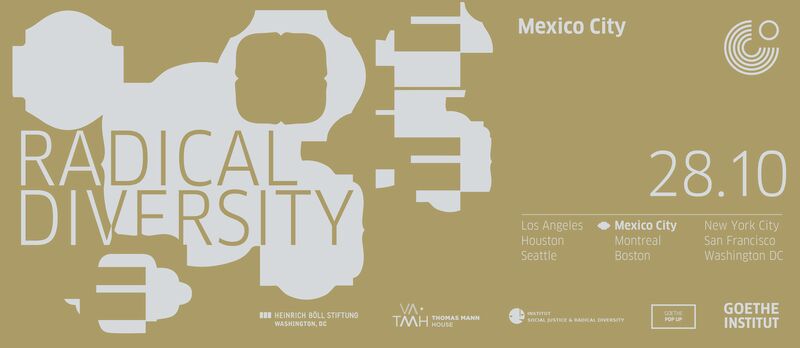
Mohamed Amjahid and Max Czollek will engage in a conversation with guests in the U.S. about strategies for a more open, diverse and just society in Germany and the U.S. Thomas Mann Fellow and author Mohamed Amjahid and poet and publicist Max Czollek talk about political activism and diversity. In their work, they discuss the politics of history in the discourse on integration in both countries and raise the question: How is social diversity expressed in politics and art in both countries? What are counter-concepts to white, hegemonic culture?
The next episode will take place in Mexico City on October 28, where Max Czollek will speak to three independent curators from Mexico City: Violeta Horcasitas, Clara Bolívar (Tlaxcala3) and Alí Cotero (Tlaxcala3). They will discuss the current state of critical curatorial practices, both within the context of the Mexican museum and outside it. They will also examine the structural and social “walls” one encounters in Mexico.
Live online webinar on October 28, 2020, 9 AM (PT). Please register here.
Participants
Max Czollek completed his doctorate studies at the Center for Research on Antisemitism at the Technical University Berlin. Since 2009, Czollek has been a member of poetry collective G13, which has published books and organized lectures. In 2018, his essay Desintegriert Euch! (Disintegrate!) was published at Carl Hanser. His second essay, Gegenwartsbewältigung (Coping with the Present), was published in August 2020.
Violeta Horcasitas is an independent curator. Her professional interests include collaborative processes, online platforms and new exhibition formats. She founded Satélite, a curatorial initiative and platform that reflects on the institution of the museum. Through collaborations with artists and specialists from various fields, Satélite believes in the power of art and culture as a means to create new forms of interaction in social space, to identify challenges, to propose alternatives, and to support participation from the public and society. With more than fifteen years of professional experience in the public, private and academic sectors, she has worked for various museums and institutions including Fundación Jumex, La Tallera, Museo del Palacio de Bellas Artes, and Instituto Nacional de Bellas Artes in Mexico. She is currently working on the 2020-2021 curatorial program for Casa del Lago UNAM.
Clara Bolívar is a researcher and curator of modern and contemporary art, which she approaches from the standpoint of historiography and cultural mediation. She has worked as a researcher at Museo Nacional de Arte – INBA and at Museo Universitario Arte Contemporáneo – UNAM. She currently oversees discussion rounds on art that are held with independent organizations such as Tertulia, Tlaxcala3 and GCAS – Latin America.
Alí Cotero is a cultural manager, researcher and communication scholar at the Universidad de la Comunicación (University of Communication). He has worked as a placement, production and management coordinator in the private and public sectors for Museo Nacional del Virreinato INAH and Museo Jumex Arte Contemporáneo as well as for cultural festivals such as Festival Internacional Cervantino INBA and Festival del Centro Histórico México. He helped launch and promote the cultural program at Casa Vecina, a cultural institution that is part of the Fundación del Centro Histórico de la Ciudad de México, AC (Mexico City Historical Center Foundation). Since 2018, he and Clara Bolívar have run Tlaxcala3, an independent space for reflection on contemporary art.
Partners
"Radical Diversity" is presented by the Goethe Institutes in North America in cooperation with Thomas Mann House, the Institute for Social Justice & Radical Diversity, funded by the Heinrich Böll Foundation North America.




The US Presidential Election and the Future of Democracy
Online
Information
An online panel discussion hosted by the Thomas Mann House, in cooperation with the American Academy in Berlin and WZB Berlin Social Science Center
The US presidential election on November 3 has placed the future of American democracy under scrutiny. The polarization of political parties, the radicalization of the far Left and Right, and attacks on the separation of powers have all increased under Donald Trump’s presidency. Gaps have emerged in the American democratic system and in the checks and balances mandated by the US Constitution. Given this situation, what does the outcome of the election mean for democracy in the United States and how will the results affect Europe and Germany? What conclusions may be drawn for the future of democracy more generally?
This panel discussion will feature Susan Neiman (Director, Einstein Forum) as well as Thomas Mann Fellows Rainer Forst (Professor of Political Theory and Philosophy, Goethe University Frankfurt), Christoph Möllers (Professor of Public Law and Philosophy of Law, Humboldt University of Berlin) and Michael Zürn (Director of the Department of Global Governance, WZB), who would currently be in residence in Los Angeles to work on their joint project "The Legitimacy of Public Power: The Connection between Morality, Law and Politics" were it not for the coronavirus pandemic. The panel will be moderated by Daniel Benjamin (President, American Academy in Berlin).
Partners
In Cooperation with American Academy in Berlin and Wissenschaftszentrum Berlin für Sozialforschung.
The Thomas Mann Fellowships are supported by Berthold Leibinger Stiftung, Robert Bosch Stiftung and Alfried Krupp von Bohlen und Halbach-Stiftung.

Radical Diversity: Discussion Series with Mohamed Amjahid and Max Czollek (Montreal)
Online

Information

Mohamed Amjahid and Max Czollek will engage in a conversation with guests in the U.S. about strategies for a more open, diverse and just society in Germany and the U.S. Thomas Mann Fellow and author Mohamed Amjahid and poet and publicist Max Czollek talk about political activism and diversity. In their work, they discuss the politics of history in the discourse on integration in both countries and raise the question: How is social diversity expressed in politics and art in both countries? What are counter-concepts to white, hegemonic culture?
The next episode will take place in Montreal on November 18, where Mohamed Amjahid will speak with Art Historian Charmaine Nelson about white knowledge production, looking back from a Black-Canadian perspective and a new era for Anthropology and Social Sciences.
Live online webinar on November 18, 2020, 9 AM (PT). Please register here.
No admission.
Participants
Charmaine A. Nelson is a Professor of Art History and a Tier I Canada Research Chair in Transatlantic Black Diasporic Art and Community Engagement and the founding director of the Institute for the Study of Canadian Slavery at NSCAD University in Halifax, Nova Scotia. The author of 7 books, Nelson has made ground-breaking contributions to the fields of the Visual Culture of Slavery, Race and Representation, Black Canadian Studies, and African-Canadian Art History. In 2017-18, she was the William Lyon Mackenzie King Visiting Professor of Canadian Studies at Harvard University (2017-2018).
Mohamed Amjahid was born as the son of so-called guest workers in Frankfurt am Main. He studied political science in Berlin and Cairo and conducted research on various anthropological projects in North Africa. During his studies, he worked as a journalist for taz, Frankfurter Rundschau and Deutschlandfunk. He has worked as a political reporter for the weekly newspaper Die Zeit and the Zeit Magazin. Anthropologically and journalistically, he focuses on human rights, equality and upheaval in the US, Europe, the Middle East and North Africa. Mohamed Amjahid is a 2020 Thomas Mann fellow.
Partners
"Radical Diversity" is presented by the Goethe Institutes in North America in cooperation with Thomas Mann House, the Institute for Social Justice & Radical Diversity, funded by the Heinrich Böll Foundation North America.




"Moonshot Thinking in Silicon Valley" – Hans Ulrich Gumbrecht and Obi Felten in Conversation with Milena Merten | Live
Online

Information

In a small area in Northern California, developments have been taking place for years that are fundamentally changing the lives of mankind. From inventions such as the transistor, to the emergence of the PC and the iPhone, to pioneering projects like internet from stratospheric balloons — between San José and San Francisco, a culture has emerged that follows the premise that nothing seems impossible or ruled out.
Literary scholar and Stanford Professor Hans Ulrich Gumbrecht believes that if Hegel were alive today and asked the question about the location of the world spirit, then he would locate it in Silicon Valley. Hans Ulrich Gumbrecht will have a conversation with Obi Felten, "Head of Getting Moonshots Ready for Contact with the Real World" at X, Alphabet’s moonshot factory. They will talk about the culture behind risk-taking in Silicon Valley, including finding the courage to fail gracefully on the road to success, how technology is shaped and moulded as it makes contact with the real world by forces as diverse as physics, biology, culture and economics, and how we can use it to create a better future for ourselves and generations to come. The event is moderated by Milena Merten, reporter for ada, Germany’s platform for life in the digital era and the economy of the future.
Event is free and open to the public.
A video of the event will be provided shortly.
Participants
Obi Felten is Head of getting moonshots ready for contact with the real world at X, Alphabet’s moonshot factory, the team behind self-driving cars, delivery drones, energy storage using molten salt and internet from balloons. Previously she was Director of Consumer Marketing for Google EMEA. Before Google, Obi launched the ecommerce business of a major UK retailer, worked as a strategy consultant and led eToys.com's (unsuccessful) expansion to Germany during the first dotcom boom. Obi serves on various boards, including Springer Nature, a global academic and educational publisher, the Wellcome Trust mental health priority area, and Shift, a charity tackling social problems through the power of design thinking and social ventures. Obi grew up in Berlin, has a BA in philosophy and psychology from Oxford University, and lives in California with her husband and young children.
Hans Ulrich Gumbrecht was the Albert Guérard Professor in Literature at Stanford University from 1989 until 2018. He received twelve honorary doctorates from universities in seven countries. In addition, he has been a Visiting Professor and Fellow at numerous academic and cultural institutions worldwide. Hans Ulrich Gumbrecht is a regular contributor to Neue Zürcher Zeitung, Frankfurter Allgemeine Zeitung, Die Zeit, Weltwoche and Estado de São Paulo. Among his recent books are Stimmungen lesen – Über eine Ontologie der Literatur (Hanser Verlag, 2011 – English, Portuguese, and Spanish translations); Unsere breite Gegenwart (Suhrkamp Verlag, 2010 – translations into English, Italian, Portuguese, and Spanish); After 1945 – Latency as Origin of the Present, Stanford University Press 2013 (German translation 2012; Portuguese translation 2014; Polish translation 2015; Russian and Spanish translations 2017, Hungarian translation forthcoming); Der Weltgeist im Silicon Valley (Portuguese and spanish translation forthcoming), Brüchige Gegenwart (2019), and Prose of the World — Denis Diderot and the Periphery of Enlightenment (German Translation 2020, French, Russian, Portuguese, and Spanish translations forthcoming).
Milena Merten is a reporter for ada, Germany’s platform for life in the digital era and the economy of the future. Previously, she was a staff writer for the Innovation and Digitization Department of WirtschaftsWoche, Germany’s leading weekly business magazine. She graduated from Georg von Holtzbrinck School for Business Journalists and wrote for Handelsblatt and Die Zeit. Milena studied politics and communication sciences in Mainz, Düsseldorf and Davis, California. She is passionate about topics at the intersection of technology and society.
Partners
An event organized by the Thomas Mann House in cooperation with the Goethe-Institut San Francisco.

The Sound of San Remo Drive: Alex Ross and Hans Rudolf Vaget in Conversation
Online

Information
Mann's life is closely connected with Richard Wagner. His lecture "Sorrows and Grandeur of Richard Wagner," delivered in February 1933, celebrated the composer and his work, yet at the same time it drew critical attention to the "dark cult of the past" in Wagner's work. In a direct confrontation with the Nazi conception of Wagner, Mann presented the composer as one "who already has one foot on atonal ground and who would certainly be called a cultural Bolshevik today." An outcry in National Socialist Germany and an angry "protest of the Richard Wagner City of Munich" followed.
Thomas and Katia Mann emigrated and did not set foot on German soil for almost fifteen years. But even during his exile in Pacific Palisades, Wagner played an important role in the creation of works such as Joseph the Provider and Doctor Faustus. Mann's diaries tell of regular evenings with recordings of Siegfried and Walküre, radio broadcasts from the Metropolitan Opera, and concerts at the Hollywood Bowl.
The author and music critic Alex Ross (The New Yorker) and the literary scholar Hans Rudolf Vaget (Smith College) enter into a conversation about Thomas Mann and the intellectual legacy of Richard Wagner.
The event will take place at the Thomas Mann House with no audience. A video of the conversation will premiere on our YouTube-Channel on November 22, 11. a.m (PT).
Participants
Alex Ross has been the music critic of The New Yorker since 1996. His first book, The Rest Is Noise: Listening to the Twentieth Century, was a finalist for the Pulitzer Prize and won a National Book Critics Circle Award. His second book was the essay collection Listen to This. He most recently published Wagnerism: Art and Politics in the Shadow of Music (Farrar, Straus, Giroux 2020). Ross was named a MacArthur Fellow in 2008 and a Guggenheim Fellow in 2015. He is a member of the Advisory Board of Thomas Mann House.
Hans Rudolf Vaget is Professor of German Studies and Comparative Literature at Smith College (Northampton, Massachusetts). He received his academic training at the universities of Munich and Tübingen, the University of Wales at Cardiff and at Columbia University in New York. His research focuses on Goethe, Wagner and Thomas Mann, on which he has published extensively. Recently he published Wehvolles Erbe: Richard Wagner in Deutschland. Hitler, Knappertsbusch, Mann (S. Fischer Publishing House, 2017).
Partners
Villa Aurora & Thomas Mann House e. V. is supported by the German Federal Foreign Office and Federal Government Commissioner for Culture and the Media.


#MutuallyMann – A Virtual Reading Initiative
Worldwide
Information
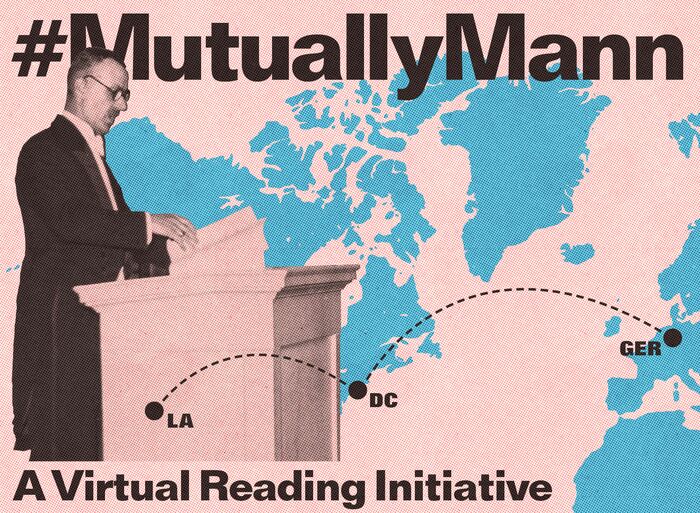
After the successful launch of the interactive reading initiative last April, #MutuallyMann is now going into the second round. The Thomas Mann House and the S. Fischer Verlag publishing house are inviting readers from all over the world to read Thomas Mann’s essay Germany and the Germans. The lecture was given by Mann right after the end of World War II at the Library of Congress in Washington D.C., New York and Los Angeles. He addressed Germany through the lens of his own experience and exile during the war.
The second edition of #MutuallyMann is an opportunity to re-read Mann’s thoughts against the backdrop of today’s transatlantic relationship and to share ideas, questions, images or favorite quotes on social media over the course of three days. From November 30 to December 2, 2020, users can post their opinions, photos and comments in English or German on social media with the hashtag #MutuallyMann.
#MutuallyMann is accompanied by text and video contributions from writers, intellectuals and renowned Mann researchers. Check out our social wall to read all the contributions by our experts and see what was happening on #MutuallyMann.
Find all the contributions by our experts from the first #MutuallyMann initiative here.
Visit the #MutuallyMann website.
Participants
Among the participants are the writers Olga Grjasnowa, Jagoda Marinić, Max Czollek and former Villa Aurora Fellow Juan Guse, music critic Alex Ross (The New Yorker), David Morris (Library of Congress), renowned Thomas Mann expert Hans Vaget (Smith College), the literary scholars Veronica Fuechtner (Dartmouth College) and Stefan Keppler-Tasaki (University of Tokyo), the German studies scholars Meike Werner (Vanderbilt University) and Kai Sina (University of Münster), the legal scholar and Thomas Mann Fellow Christoph Möllers (Humboldt University Berlin), as well as Thomas Mann Fellow and journalist Maria Exner (Die Zeit).
Partners
This initiative is a cooperation of the Thomas Mann House and the S. Fischer Verlag publishing house.

Villa Aurora & Thomas Mann House e. V. is supported by the German Federal Foreign Office and Federal Government Commissioner for Culture and the Media.


Mann & Beethoven: Political Artists in Revolutionary Times. William Kinderman & Mark Swed in Conversation
Online
Information
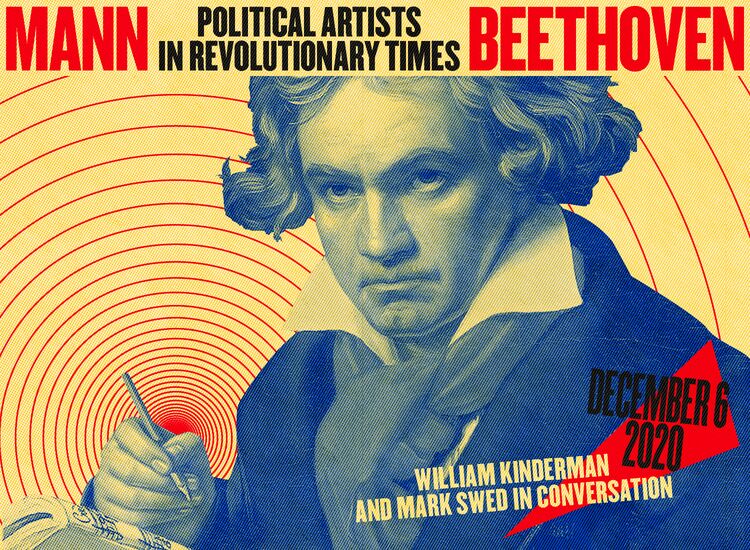
Ludwig van Beethoven has long been regarded as one of the greatest composers, but he and his work also exert a lasting political influence. Already the Austrian Emperor Franz is reported to have said “something revolutionary lurks in the music.” To this day, Beethoven's music is played worldwide as the anthem of democratization movements, but was also appropriated by totalitarian systems. While we mark and move beyond the composer’s anniversary year 2020, a fresh investigation of the political importance of Beethoven’s artistic legacy seems timely.
Music scholar and pianist William Kinderman gets into a conversation with Mark Swed, music critic for the Los Angeles Times. They talk about references and parallels in the life and work of Ludwig van Beethoven and Thomas Mann, who wrote his Doktor Faustus in California after his escape from Hitler's regime and placed his desperate message there against the background of Beethoven's last symphony.
Watch the Event here.
Participants
William Kinderman is professor of music and the Leo M. Klein and Elaine Krown Klein Chair in Performance Studies at the University of California Los Angeles. His many books include Beethoven, Wagner’s “Parsifal” and, most recently, Beethoven. A Political Artist in Revolutinary Times.
Mark Swed has been the classical music critic of the Los Angeles Times since 1996. Before that, he was a music critic for the Los Angeles Herald Examiner and the Wall Street Journal and has written extensively for international publications. Swed is the author of the book-length text to the best-selling iPad app, The Orchestra and is a former associate editor of the Musical Quarterly.
Partners
Villa Aurora & Thomas Mann House e. V. is supported by the German Federal Foreign Office and Federal Government Commissioner for Culture and the Media.


Radical Diversity: Discussion Series with Mohamed Amjahid and Max Czollek (Boston)
Online

Information

Mohamed Amjahid and Max Czollek will engage in a conversation with guests in the U.S. about strategies for a more open, diverse and just society in Germany and the U.S. Thomas Mann Fellow and author Mohamed Amjahid and poet and publicist Max Czollek talk about political activism and diversity. In their work, they discuss the politics of history in the discourse on integration in both countries and raise the question: How is social diversity expressed in politics and art in both countries? What are counter-concepts to white, hegemonic culture?
In the next discussion on December 09, hosted by the Goethe-Institut Boston, Max Czollek and Mohamed Amjahid speak with an anthropologist and an award-winning podcaster about the role of Jewish and Muslim communities in contemporary society. Researcher Sultan Doughan and journalist/podcaster Rachael Cerrotti approach the subject from very different perspectives: one is scientific, one is personal.
Live online webinar on December 09, 2020, 9 a.m. (PT). Please register here.
No admission.
Participants
Sultan Doughan is an anthropologist, who works on questions of citizenship, religious difference, racialization of Jewish and Muslim communities and political equality in contemporary Germany. She is particularly concerned with how genocide commemoration and the question of justice, transitional and racial, intersect and give rise to secular moral and ethical claims in public. Doughan has conducted field research among civil society organizations that were funded to combat Islamic extremism by teaching tolerance through the memory of the Holocaust. Dr. Doughan is currently a postdoctoral fellow at the Elie Wiesel Center for Jewish Studies, Boston University.
Rachael Cerrotti is an award-winning documentary photographer, writer, educator and producer. Her work focuses on exploring the intergenerational impact of memory and migration. For over a decade, Rachael has been retracing her grandmother’s Holocaust survival story and documenting the echoes of World War II. In the fall of 2019, she released a narrative podcast about this story titled We Share The Same Sky. It is now being taught in high school classrooms throughout the United States and abroad. Rachael has worked in over a dozen countries and has been published and featured by NPR, PRI’s The World, WBUR, GBH, amongst others and regularly presents to communities and classrooms worldwide. Rachael has a forthcoming memoir set to be published in the fall of 2021 and works as a creative producer with USC Shoah Foundation. She is currently based in Maine.
Mohamed Amjahid was born as the son of so-called guest workers in Frankfurt am Main. He studied political science in Berlin and Cairo and conducted research on various anthropological projects in North Africa. During his studies, he worked as a journalist for taz, Frankfurter Rundschau and Deutschlandfunk. He has worked as a political reporter for the weekly newspaper Die Zeit and the Zeit Magazin. Anthropologically and journalistically, he focuses on human rights, equality and upheaval in the US, Europe, the Middle East and North Africa. Mohamed Amjahid is a 2020 Thomas Mann fellow.
Max Czollek completed his doctorate studies at the Center for Research on Antisemitism at the Technical University Berlin. Since 2009, Czollek has been a member of poetry collective G13, which has published books and organized lectures. In 2018, his essay Desintegriert Euch! (Disintegrate!) was published at Carl Hanser. His second essay, Gegenwartsbewältigung (Coping with the Present), was published in August 2020.
Partners
"Radical Diversity" is presented by the Goethe Institutes in North America in cooperation with Thomas Mann House, the Institute for Social Justice & Radical Diversity, funded by the Heinrich Böll Foundation North America.








